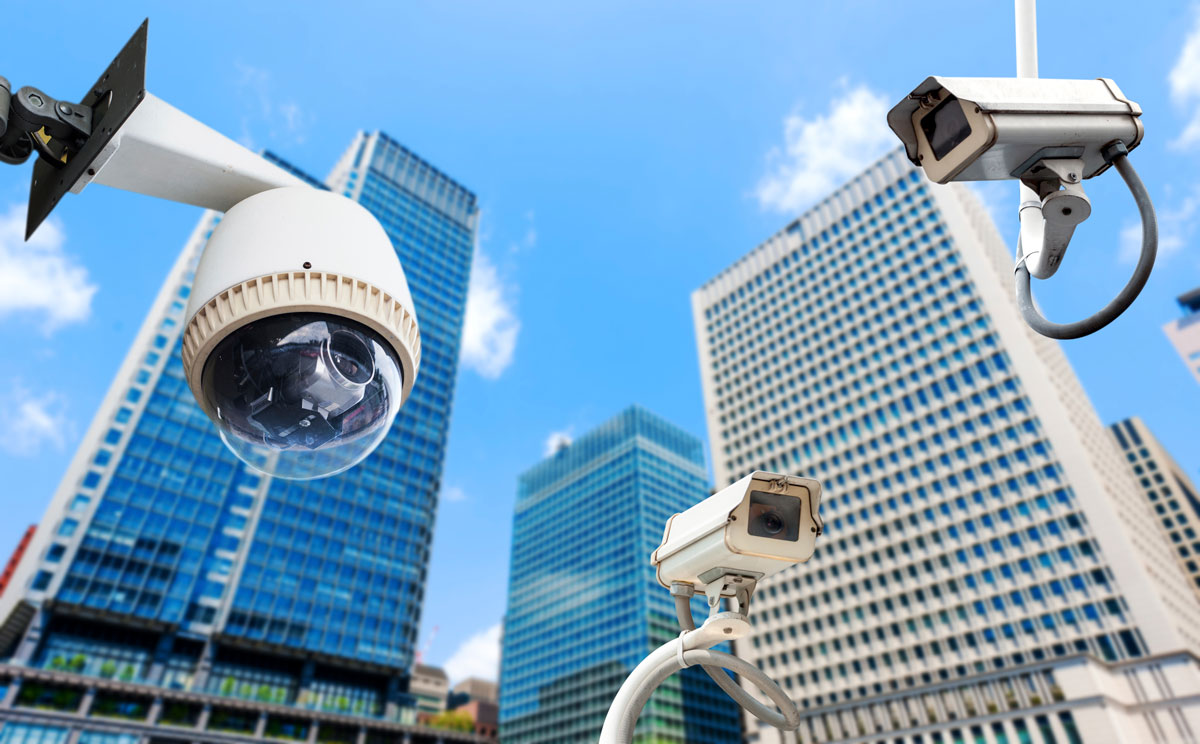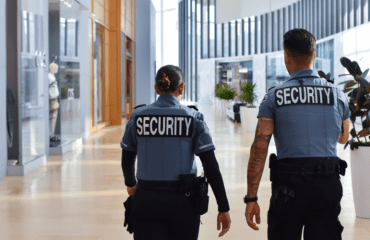In today’s ever-changing world, businesses face a wide range of security threats that can impact their operations, assets, and overall success. From theft and vandalism to cyberattacks and employee misconduct, the need for robust security has never been greater. This blog will explore why security is essential for protecting your assets and ensuring the long-term stability of your business.
Alpine Protection Services
Alpine Protection Services offers top-tier security services tailored to meet the unique needs of businesses and individuals. With a commitment to excellence, Alpine provides a wide range of services, including security guard services, event security, and customized protection plans. Their team of highly trained professionals ensures that every client receives the highest level of security, whether it’s for a small event or a large commercial property. By leveraging the latest technology and best practices, Alpine Protection Services delivers peace of mind, allowing clients to focus on their core activities while knowing their assets and people are well-protected.
Understanding Its Importance
it is the backbone of any business’s safety strategy. It encompasses a wide range of measures designed to protect physical assets, personnel, and sensitive information from potential threats. Whether you run a small retail store, manage a large office building, or oversee a sprawling industrial complex, having an inclusive commercial security plan in place is crucial. The importance of security lies in its ability to deter crime, protect valuable assets, and provide peace of mind to business owners, employees, and customers. Without adequate security measures, businesses are vulnerable to a variety of risks that can lead to significant financial losses, reputational damage, and legal liabilities.
Safeguard Valuable Assets
For many businesses, their assets are their most valuable resources. This includes physical assets like equipment, inventory, and cash, as well as intangible assets like intellectual property and customer data. Protecting these assets is essential for the long-term success of any business. Security measures are designed to safeguard these valuable assets by preventing unauthorized access, theft, and damage. For example, electronic access control systems can restrict entry to sensitive areas of a business, ensuring that only authorized personnel have access. Similarly, surveillance cameras can monitor the premises and provide a record of any suspicious activity, helping to identify and apprehend perpetrators.
Enhance Employee Safety and Morale
The safety and well-being of employees are top priorities for any business. Security measures play a key role in ensuring a safe working environment, which in turn can have a positive impact on employee morale and productivity. By implementing security measures, such as surveillance cameras, access control systems, and security personnel, businesses can create a secure environment where employees feel safe and protected. This sense of security can lead to increased job satisfaction and productivity, as employees are less likely to be distracted or anxious about potential security threats.
Ensure Business Continuity
Business continuity refers to a company’s ability to continue operating in the face of unexpected events or disruptions. Commercial security plays a critical role in ensuring business continuity by protecting assets, minimizing losses, and enabling a swift response to incidents. For example, in the event of a natural disaster or a break-in, having security measures in place can help mitigate the impact of the event and allow the business to resume operations as quickly as possible. Security systems, such as surveillance cameras and alarm systems, can provide valuable information about the incident, helping businesses assess the damage and make informed decisions about how to proceed.
Protecting Against Insider Threats
While external threats like theft and vandalism are a significant concern for businesses, insider threats can be just as damaging. Insider threats refer to security risks that come from within the organization, such as employee theft, fraud, or sabotage. Security measures can help protect against insider threats by monitoring employee activity and ensuring that sensitive areas are only accessible to authorized personnel. For example, access control systems can be used to track who enters and exits certain areas of the business, helping to identify any suspicious activity.
Meeting Legal and Regulatory Requirements
Many industries are subject to legal and regulatory requirements that mandate specific security measures. For example, businesses in the financial sector may be required to implement certain cybersecurity measures to protect customer data, while retail businesses may need to comply with regulations related to physical security and loss prevention. Partnering with a commercial security provider can help businesses ensure that they are meeting these legal and regulatory requirements. Security professionals are well-versed in the latest industry standards and can help businesses implement the necessary security measures to stay compliant.
Leveraging Technology for Enhanced Security
Advancements in technology have revolutionized the field of security, providing businesses with a wide range of tools to protect their assets and operations. From surveillance cameras with advanced analytics to access control systems that can be managed remotely, technology has made it easier than ever for businesses to implement effective security measures. One of the key benefits of leveraging technology in security is the ability to monitor and manage security systems in real-time. For example, modern surveillance cameras can be equipped with motion detection and facial recognition technology, allowing businesses to identify potential threats quickly. Similarly, access control systems can be integrated with mobile apps, enabling business owners to manage access to their premises from anywhere.
Customizing Your Commercial Security Plan
Every business is unique, and the security needs of one business may differ significantly from those of another. This is why it’s important to customize your security plan to address the specific risks and challenges that your business faces. A customized security plan should begin with a thorough assessment of your business’s assets, operations, and potential vulnerabilities. This assessment can help identify areas where additional security measures may be needed, such as installing surveillance cameras in high-traffic areas or implementing stricter access control protocols for sensitive information.
Conclusion
In today’s complex and unpredictable world, commercial security is a must-have for businesses of all sizes and industries. By investing in inclusive security measures, businesses can protect their assets, ensure the safety of their employees, and maintain a strong reputation in the marketplace. It is not just about protecting physical assets; it’s about safeguarding the future of your business. Whether you’re deterring crime, preventing insider threats, or ensuring compliance with legal requirements, a well-rounded security plan can help you navigate the challenges of the modern business environment.



